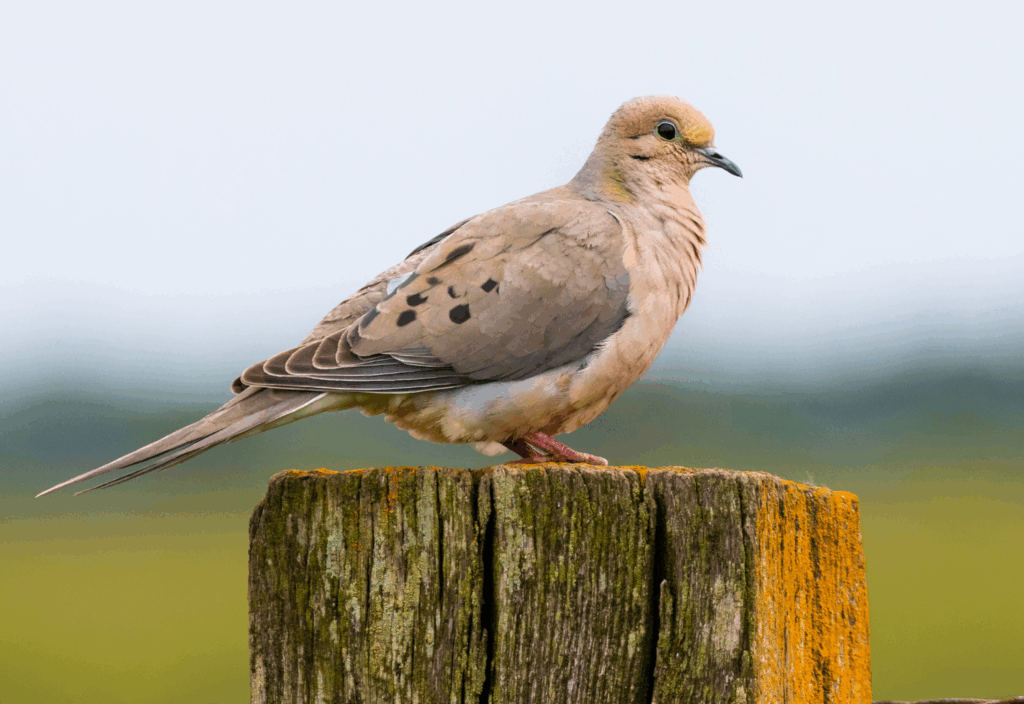To buy your Virginia dove license, visit the official Virginia licensing website. Be sure to check out Virginia’s official hunting regulations before hitting the field.

Dove hunting is a great way for hunters to spend some time in the field this year. Known for their fast flight and plentiful numbers, doves present a challenging yet accessible hunting opportunity, and make for fine table fare as well.
Knowing exactly what permits and licenses you need ensures a legal and enjoyable hunting experience. In this article, we’ll talk through the key things to know before setting foot in the field this year.
To hunt Dove in Virginia, you’ll need a valid Virginia hunting license and HIP registration. Both residents and nonresidents are required to have this license to legally pursue dove during the hunting season.
In Virginia, you must complete hunter ed if you are 12–15 or if you are buying your first regular hunting license. Virginia also offers an Apprentice Hunting License (no age limit) that defers hunter ed while you hunt under direct supervision. This ensures that all hunters understand safety and ethical hunting practices.
These steps are essential to comply with Virginia’s wildlife laws and to enjoy dove hunting responsibly.
While a Virginia hunting license covers the basic requirement, hunters pursuing dove must also register with the Harvest Information Program (HIP). This federal program helps wildlife agencies monitor migratory bird harvests and is mandatory for all migratory bird hunters, including dove hunters.
Virginia does not require a special dove permit. The season is open to all licensed hunters who meet the standard requirements.
It is important to note that no additional state-specific stamps, such as a migratory bird stamp, are required beyond the HIP registration for dove hunting in Virginia.
The Dove hunting season in Virginia is typically broken into three different seasons. The first opening in early September, running through mid-October. The second, typically a one-week period in mid to late November, and the third and final season runs from mid-December to mid-January. Exact dates vary slightly each year based on state regulations and migratory patterns.
For the most accurate and up-to-date season dates, hunters should consult the Virginia Department of Wildlife Resources website directly.
Virginia enforces a daily bag limit of 15 doves per hunter, which aligns with federal migratory bird regulations. This limit helps maintain sustainable dove populations while allowing hunters ample opportunity to enjoy the sport.
Only shotguns capable of holding three shells or fewer are legal for dove hunting in Virginia, in accordance with federal migratory bird hunting regulations. This restriction is designed to promote ethical hunting and reduce overharvesting.
Hunters must also adhere to all other state and federal laws regarding hunting hours, safety zones, and more. Legal hunting methods include the use of shotguns with appropriately sized shot (typically size 7, 7.5, or 8). Hunters may use lead shot when hunting doves, except when hunting areas specifically require non-toxic shot (such as state or federal wetlands).
For comprehensive details on bag limits, method of take restrictions, and other legal considerations, consult the Virginia Department of Wildlife Resources official guidelines.
Virginia offers numerous opportunities to hunt dove on public lands, including many Wildlife Management Areas (WMAs). These areas provide accessible and well-managed habitats for dove and other game species.
Hunters may also pursue dove on private lands, but it is essential to obtain explicit permission from landowners before hunting.
The Virginia Department of Wildlife Resources provides detailed maps and tools to locate public hunting lands, including WMAs suitable for dove hunting. These resources are invaluable for planning your hunting trips and ensuring you hunt in authorized areas.
Utilizing these official maps and resources helps hunters maximize their experience while respecting land use regulations throughout Virginia.
In Virginia, you must complete hunter ed if you are 12–15 or if you are buying your first regular hunting license. This course covers essential topics such as firearm safety, wildlife conservation, and ethical hunting practices.
There are exceptions for hunters under 16 years old who are supervised by a licensed adult during their hunting activities.
The Virginia Hunter Education program is available both online and in-person, providing flexible options for prospective hunters to meet this requirement.
For more information and to access hunter education resources, visit https://recademics.com/hunting/Virginia.
You can purchase your Virginia hunting license for Dove through the Virginia Department of Wildlife Resources. Licenses are available online, by phone, or in person at authorized vendors such as sporting goods stores and wildlife offices.
To buy online, visit the official Virginia Department of Wildlife Resources website, where you can create an account, complete the application, and pay securely.
In-person purchases are convenient for those who prefer direct assistance or need additional information about hunting regulations.
For detailed step-by-step instructions and helpful tips on obtaining your Virginia hunting license, refer to the comprehensive guide at https://recademics.com/blog/hunting/how-to-get-a-hunting-license-in-Virginia/.
No, a special permit is not required beyond the standard Virginia hunting license and HIP registration for dove hunting.
Yes, nonresidents can hunt dove in Virginia but must purchase a nonresident hunting license and comply with all state regulations.
In Virginia, you must complete hunter ed if you are 12–15 or if you are buying your first regular hunting license. Virginia also offers an Apprentice Hunting License (no age limit) that defers hunter ed while you hunt under direct supervision.
The daily bag limit for dove in Virginia is 15 birds per hunter.
Official season dates are published annually by the Virginia Department of Wildlife Resources and can be found on their website.
This is a FREE Boating course.